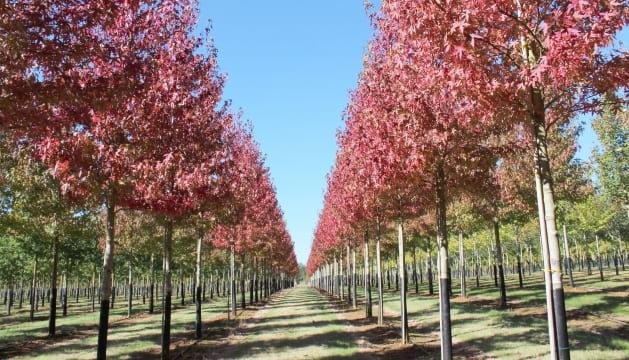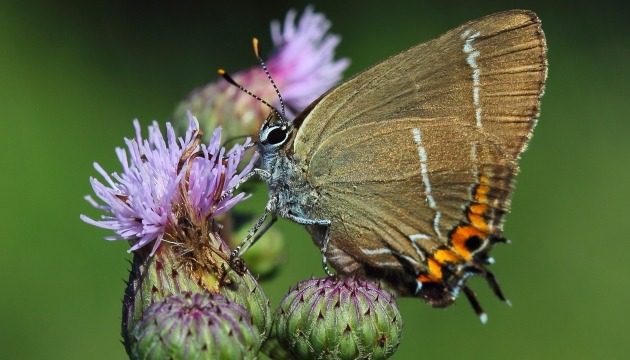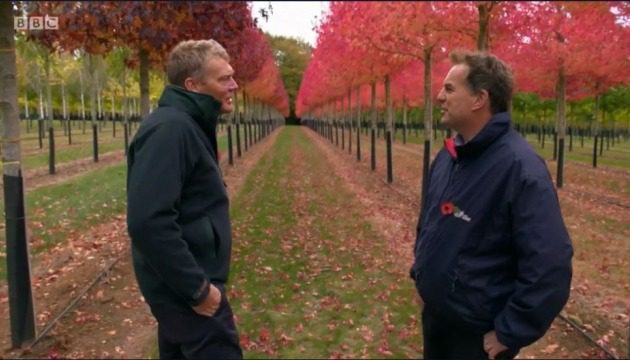Martin Hillier, Senior Manager at Hillier Broadmead Trees and Ruth Holland, Ecologist at Pro Vision, by the new freshwater ponds created at Broadmead, Hillier Trees Container Tree Nursery
Press release – 1 November 2018
Two new freshwater ponds in Hampshire have quickly become home to a growing population of rare great crested newts.
A small colony of the protected species discovered at Broadmead Trees, part of Hillier Nurseries in Ampfield, has more than tripled in size over the past four years, monitoring by Pro Vision ecologists shows. The great crested newt is the most endangered of the three British newts and by far the largest. The breeding male newt looks a bit like a mini dragon with a large jagged crest on the back, essential to impress females in courtship. The amphibians are also known as the northern crested newt or warty newt.
Nationally, great crested newts have suffered huge declines due mostly to habitat loss and are protected under European and UK law.
Two new ponds were created and planted with native aquatic plant species to make up for the loss of the original pond at Broadmead Trees earmarked for development into a new reservoir.
Pro Vision ecologists, who are licensed by the government to handle great crested newts, counted, captured and relocated the newt population to the new ponds.
Martin Hillier, senior manager at Broadmead Trees, said: “I am happy that we have been able to support this endangered species, whilst still being able to harvest our rainfall with the new reservoir for our irrigation needs.”
Pro Vision ecologist Ruth Holland, who was involved in monitoring and maintaining the ponds, said the numbers of great crested newts had more than tripled from a peak count of 9 in the original pond.
She said: “In 2015 and 2016, there were only low numbers; however, in 2017 and 2018 the peak counts jumped to 31 and 32, respectively, with evidence of eggs. This confirms the great crested newts had taken to the new ponds well and are most definitely using them for breeding.”
Ruth said it was satisfying to know the translocation programme had been successful. She said: “Just because you create a suitable habitat, it doesn’t necessarily mean a species will use it. But if monitoring shows year-on-year increases, you know you got it right.”
Hillier Nurseries commissioned Pro Vision Ecology to conduct a Phase 1 survey to assess the site where it wanted to build a new reservoir to identify any habitats important for wildlife. After identifying the pond, ecologists completed further Phase 2 surveys which showed protected great crested newts were present.
Any development on sites where great crested newts are present requires an application to Natural England for a licence to move the protected species out of harm’s way.
Pro Vision Ecology provided expert advice, including developing a mitigation and compensation strategy with monitoring. As part of this strategy, Hillier Nurseries created more habitat than it removed – two ponds for the one lost plus log piles on nearby land for the newts to hibernate in over winter. The original pond was 170 sqm and the two new ponds are 170 sqm and 90 sqm.
If you would like more information about this news article, please contact info@hillier.co.uk



